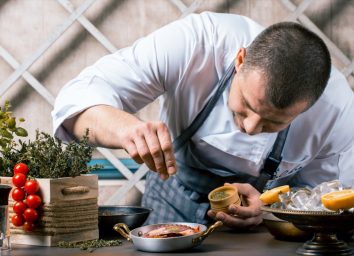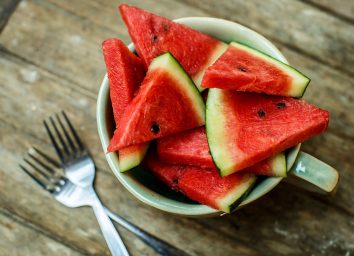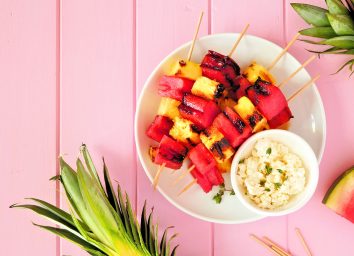This Is the #1 Worst Summer Cooking Injury, Expert Says
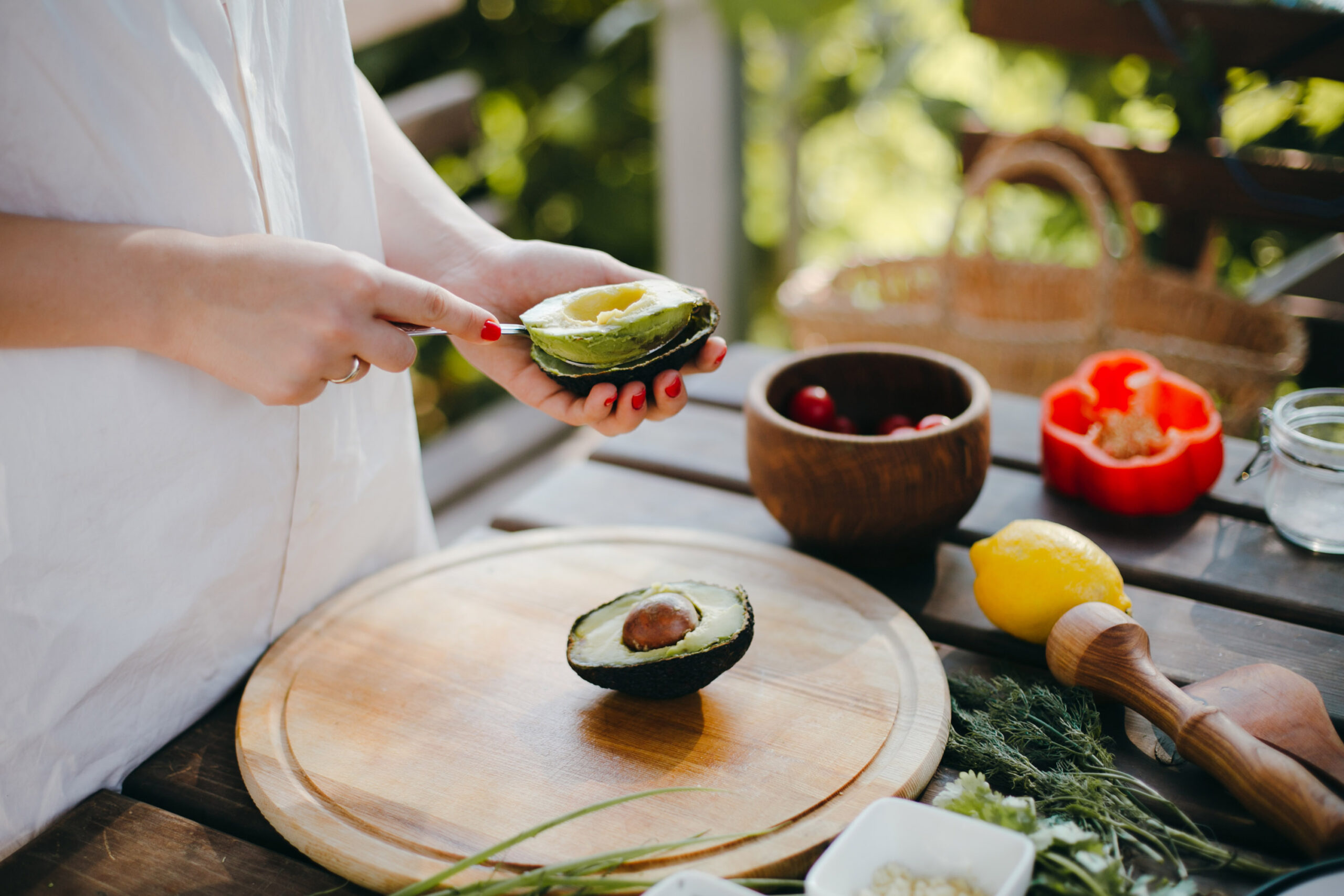
If you love to throw a good party, you might admit: The heart-pulsing prep is half the thrill. But as you approach those final moments before the anticipated get-together, a hand surgeon is warning you to watch out for a few unexpected cooking injuries that commonly happen in summer—including from one beloved food that, shockingly, causes 50,000 injuries to Americans each year.
Ryan Rice, M.D., is a surgeon who is double-board-certified in plastic and general surgery, as well as the chair of ambulatory surgery at Pennsylvania’s Penn Highlands Healthcare. One of Rice’s areas of specialization is hand surgeries, which make up approximately 25 percent of his practice. Recently, Rice raised awareness about minor summer kitchen mistakes that lead to majorly unpleasant consequences.
Keep reading to learn which foods he says you should be extra careful when handling, and sign up for the Eat This, Not That! newsletter for food news you can use. Also don’t miss The Best & Worst Barbecue Sauces on Store Shelves, According to RDs.
Avocado Hand

The concept might elicit a giggle, but “avocado hand” is a real thing—in fact, Rice says, the adored avocado is the food that most often leads to cooking-related injuries. Last year, the regional newspaper Tri-County Sunday (via ConnectRadio.fm) stated Rice sees “‘a number of patients each year for hand injuries after they’ve stabbed themselves trying to remove the pit from avocados.'” The report continued: “The trend is not unique, as Rice cites a reported 50,000 avocado injuries in the United States each year. What often happens is that ‘the flexor tendon gets stabbed, which makes it hard to bend the finger,’ he explains.”
If you’re about to get your guac on, don’t get Food Network-fancy with your knife—instead, here’s a way to prevent avocado hand, from the report: “Consider placing a kitchen towel in your hand before pitting the avocado, or forgo the fancy technique altogether and scoop out both the pit and the flesh with a tablespoon.”
Also, don’t miss our 20 Best-Ever Guacamole Recipes, or What Happens to Your Body When You Eat an Avocado.
Melon Mistakes
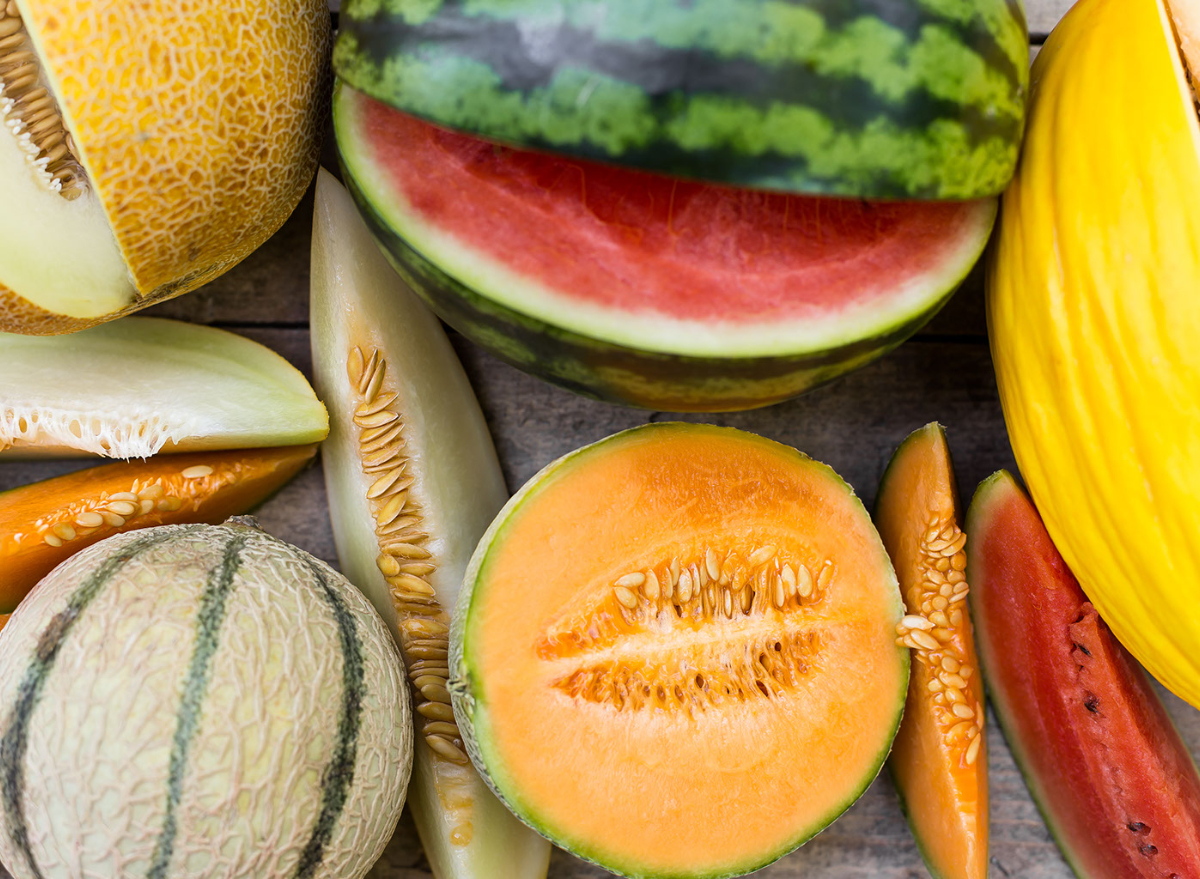
Along with avocado hand, Rice said melons are commonly a source of summer cooking injuries. “Watermelon is a big one,” he said. Try not to be in a rush when cutting into a tough rind. To lessen the risk of injury from a melon, consider slicing off a rounded end as you make your first cut. This gives the melon a flat end to stand on while you slice the rest of the way. Once you’re in, some pros have suggested using plain dental floss to separate the flesh of the fruit from the rind and even slicing individual pieces using the same method.
Plus, to avoid the risk of bacterial contamination from the skin as you slice through the fruit, it’s also wise to rinse your melon when you get it home from the store or produce stand—but before you slice, make sure the fruit, your knife, and the surface beneath both are thoroughly dry.
This same suggestion can go for pineapple, spaghetti squash, or any food with a tough outer surface.
Injuries That Stem from Glassware

Here’s a kitchen injury that can occur any time of year, Rice said: “Washing dishes in a sink where there’s soapy water, a glass can cut the finger and even cut a tendon.” Wearing gloves not only protects a pretty manicure and reduces skin dryness, but is also an easy, practical way to reduce your chance of being cut when the dishes are piled high after a long day.
A Flaming Good Time

It might seem obvious, but it bears stating: When you’re working around live flame, safety is critical, as is your full attention. It’s OK—and even wise—to ask the crowd to step back when you’re at the grill while simultaneously carrying on conversation with guests, the activity’s swirling, or kids are around.
The same goes for fireworks, Rice says, noting that a blast injury “takes not even a second.”
Safety first, this summer and always. Keep reading:
- The #1 Best Drink to Soothe Your Sunburn, Expert Says
- The #1 Worst Nathan’s Hot Dog to Eat
- The Most Popular Beer Trends Right Now, Say Experts
